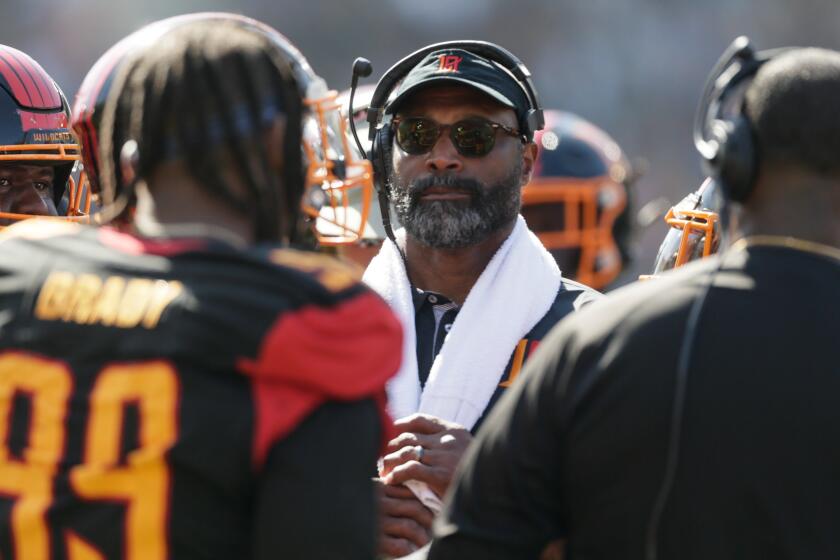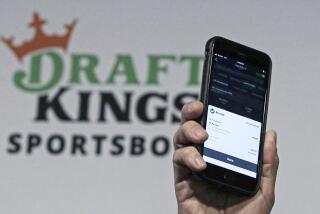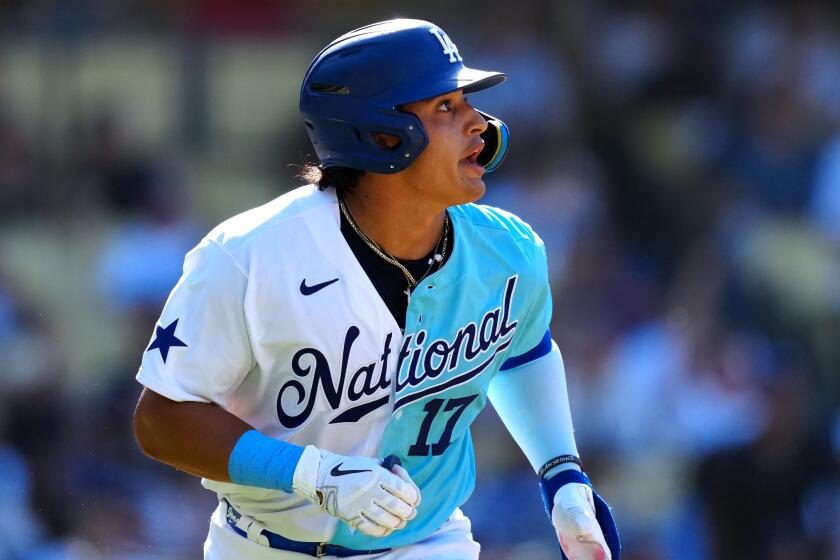XFL gambled by linking game action to sports betting
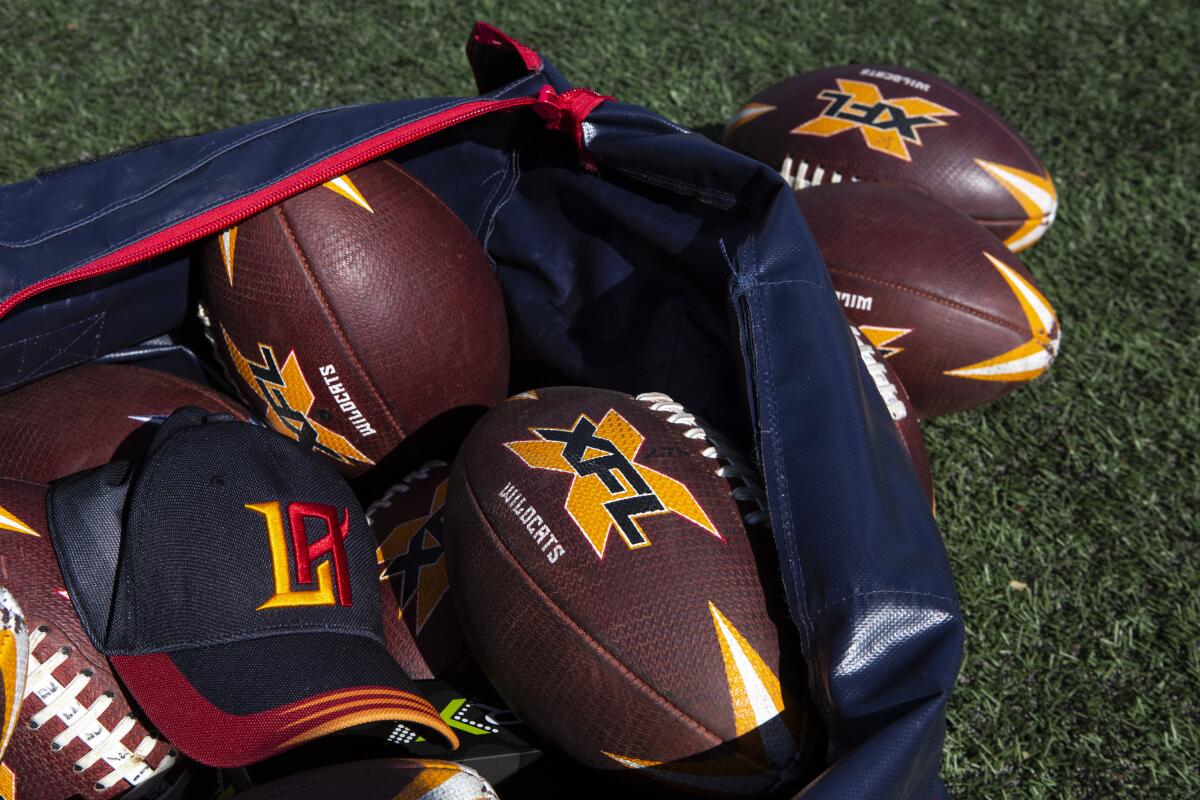
The XFL’s obituary is short. The spring start-up existed for only five weeks of games before suspending operations late last week and filing for bankruptcy Monday.
The XFL was creative in introducing three-point conversions, modified kickoff coverages, a shortened play clock and a propensity for trick plays, but it might be best remembered for how it embraced sports betting.
There’s an old sportsbooks adage — you’re not really a true sport until you’re on the betting boards in Las Vegas — and the XFL took it to heart. League President Jeffrey Pollock described gambling as “absolutely fundamental” to the XFL’s foundation.
“A core business strategy, and really a core fan-engagement strategy for us, is to embrace the spread,” he said during the season, leaning on hyperbole to add: “Betting and sports gaming are as essential to the football experience in 2020 as the helmet, the jersey and the ball.”
The XFL established a partnership with an online sportsbook and hired a research firm to collect data that helped set betting lines. It also coordinated “BetCasts” with VSiN, a gambling-oriented internet television outlet, for online broadcasts of games produced with a slant toward the side action.
It pitched its product to the industry’s power brokers, putting itself on the extreme end of sports’ larger pro-gambling trend. Since a 2018 Supreme Court decision paved the way for legalized sports betting, 21 states now allow the activity according to the Action Network.
The upstart XFL all but evaporated Monday with a 15-page document in U.S. Bankruptcy Court in Delaware.
“They had a great open attitude toward figuring out how to be sports-betting friendly,” VSiN founder and chairman Brian Musburger said, noting the wave of small wagers it garnered from general football fans.
“They were able to take a leadership position. I think some of the other leagues have been waiting for more states to legalize [sports betting]. The XFL jumped in before it was legal in some of the states that had teams. It was very progressive thinking on their part.”
The XFL’s prized national broadcast time on Fox/FS1 and ESPN/ABC bent traditional TV norms in other ways as well.
From a club-level broadcast booth at Dignity Health Sports Park during Week 3 of the season, Fox Sports announcer Curt Menefee routinely called on sideline reporter Jenny Taft for between-play interviews and fell silent during several crucial third-down situations so live audio of the coaches’ play-calls could be patched in.
And when the L.A. Wildcats opened up a two-touchdown lead late in the first half, Menefee segued right into a sports-betting angle.
“Fox Bet said DC was an 8½-point favorite,” Menefee said, turning to a topic once deemed taboo for live sports coverage. “Right now, they’re down 14 points, and it’s only the second quarter.”
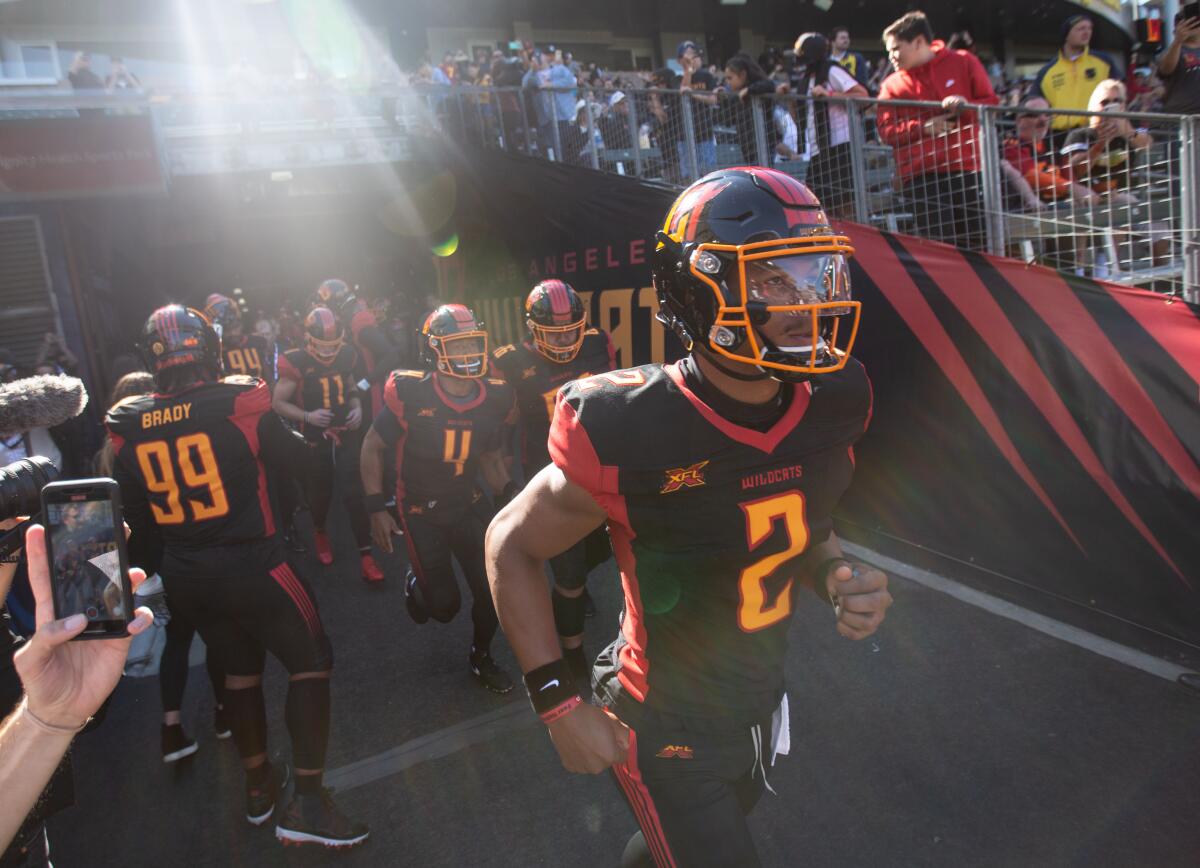
The XFL hoped that these little moments would build long-term loyalty. The league said it had research that showed “football fans, young football fans, avid football fans, want gaming as an essential part of the modern-day experience,” Pollack said.
David Hill, who brought several innovations to football broadcasts as president of Fox Sports and as a longtime executive for 21st Century Fox, said when he launched Sky Sports in England early in his career, “The first thing I’d do when I’d get to a ground, before I’d have a production meeting, is I’d go to a bookie’s tent and I’d put bets down. I’d bet on who had the first throw-in, who’d score the first goal.”
Fox producer Chuck McDonald, who jumped into the XFL season after working on some of Fox’s top college football broadcasts in the fall, compared on-air conversations about gambling to those concerning the weather.
“You come out at the top of the show and establish what is the over-under, who is the favorite by how many points,” he said. “Then, throughout the game, be aggressive as it comes up, as necessary. … It’s an obvious thing to weave in.”
Menefee, best known for his role hosting Fox’s Sunday morning NFL pregame show, noted that the XFL embraced gambling talk that was mostly avoided during NFL broadcasts.
“There’s no tap-dancing,” he said. “There’s no secret. Yeah, this team is favored by 6½ and they’re up by seven right now, so you know a lot of people are nervous whether or not this touchdown happens. It’s just an honest way to look at it from a fan standpoint.”
Musburger credited the league’s straight-forward approach with helping its television numbers outpace modest expectations. The league’s Week 1 games averaged more than 3 million viewers. Its average overall audiences, which routinely surpassed 1 million, roughly matched national NBA and NCAA basketball games.
“There was a real grassroots following that was building,” Musberger said.
But even before its debut season was cut short by the COVID-19 pandemic, the XFL was struggling to fill NFL-sized stadiums and failing to generate the volume of action the gambling industry had hoped for.
“There was more discussion than action,” said Jay Kornegay, vice president of race and sports book operations at the Westgate Las Vegas, noting that most league games brought in less business than a Mid-American Conference college game. “They had some great TV coverage, which obviously helps. We thought it was going to be a little more popular than it was. However, it really takes time for the general public to warm up to these leagues.”
Time the XFL didn’t have. Despite an abundance of ideas, the league’s Cinderella story ended at noon instead of midnight. A half-season’s worth of games was not enough to engineer a fairy-tale ending.
“Across the board, the enjoyment, satisfaction, camaraderie, and the great working environment that everybody is going to leave behind is the punch in the gut,” said Chuck Price, director of football administration for the Los Angeles franchise.
Times staff writer Sam Farmer contributed to this article.
More to Read
Go beyond the scoreboard
Get the latest on L.A.'s teams in the daily Sports Report newsletter.
You may occasionally receive promotional content from the Los Angeles Times.

